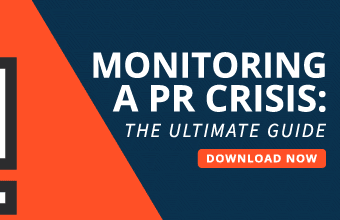We have experienced a virtual whirlwind of news, advice and trends related to Covid-19 in the last several days, and the reports are shifting by the day. The media and government are supposed to be keeping us informed and encouraging us to take responsible precautions. But do we trust that they are giving us the right information and advice? It depends who you ask.
While the shortcomings of these institutions can sometimes have limited effects on daily life, a new survey from research and strategy firm Shapiro+Raj shows the true detrimental impact on consumer behavior this trust gap can breed when big challenges like these arise.
As expected, news media is the primary source (76 percent) of consumer information, with social media the resource for 42 percent. Friends and relatives are a very important source at 29 percent, which is about the same as health information websites (like Mayo Clinic, WebMD, etc.) and almost 10 points more than healthcare providers (like doctors and nurses) at 18 percent. 
Coronavirus outbreak‘s cultural impact
The firm’s survey results show that more than half (58 percent) of respondents said they are concerned about the outbreak’s potential impact on them and their family, while 24 percent showed little to no concern. Roughly half (51 percent) said they have changed their lifestyle because of Covid-19.
Social distancing actions seem to be taking hold. Forty-eight percent are staying home more and are avoiding crowded places, while an additional 12 percent are just working from home currently. Over 22 percent have changed their travel plans since becoming aware of the outbreak.
There is also a higher focus on hygiene, with 71 percent of Americans washing their hands longer and doing so more often, as well as increasing their use of hand sanitizers. About 12 percent have purchased and use a face mask. Almost a third of the country is stocking up on food and household supplies.
The survey also sought to understand key concerns. Although 64 percent of Americans do not feel threatened by the virus, the remaining third feel that they and a loved one could be endangered—even though less than 4 percent of them know someone diagnosed with the virus.

Coronavirus and the media
In terms of the media’s handling of Covid-19, about 39 percent think they are doing a very good job (media-positives), while 37 percent think they are doing a fair/poor job (media-negatives). Among people who term as media-positive, 63 percent have changed their lifestyle. But that figure drops to 38 percent among the media-negative.
The survey results also reveal far higher hygiene and social distancing rates in the media-positive group, who are about 400 percent more likely to feel an intense perceived risk compared to media-negatives. But despite news media being their lead source, almost 20 percent of consumers surveyed think media’s coverage is poor and sensational.

Coronavirus and the government
The survey also found differences based on government performance ratings (federal, state and local). About 34 percent feel they’re doing a good job, while 30 percent say the opposite. Among government-positives, 57 percent made a lifestyle change compared to 51 percent of the government-negative folks.
Also, 21 percent of government positive people feel at definite risk of exposure versus 12 percent of government negative folks. The good news is that both groups have similar incidence of taking both hygienic and social precautions.
“This, like many other national challenges, requires us to come together as a community,” said Zain Raj, chairman and CEO of Shapiro+Raj, in a news release. “All institutions need to build trust, which is about deeds and not words, so we feel empowered to act as one and solve big problems as soon as possible.”
The firm surveyed 577 people on or before March 13, practically all of whom were aware of coronavirus.








